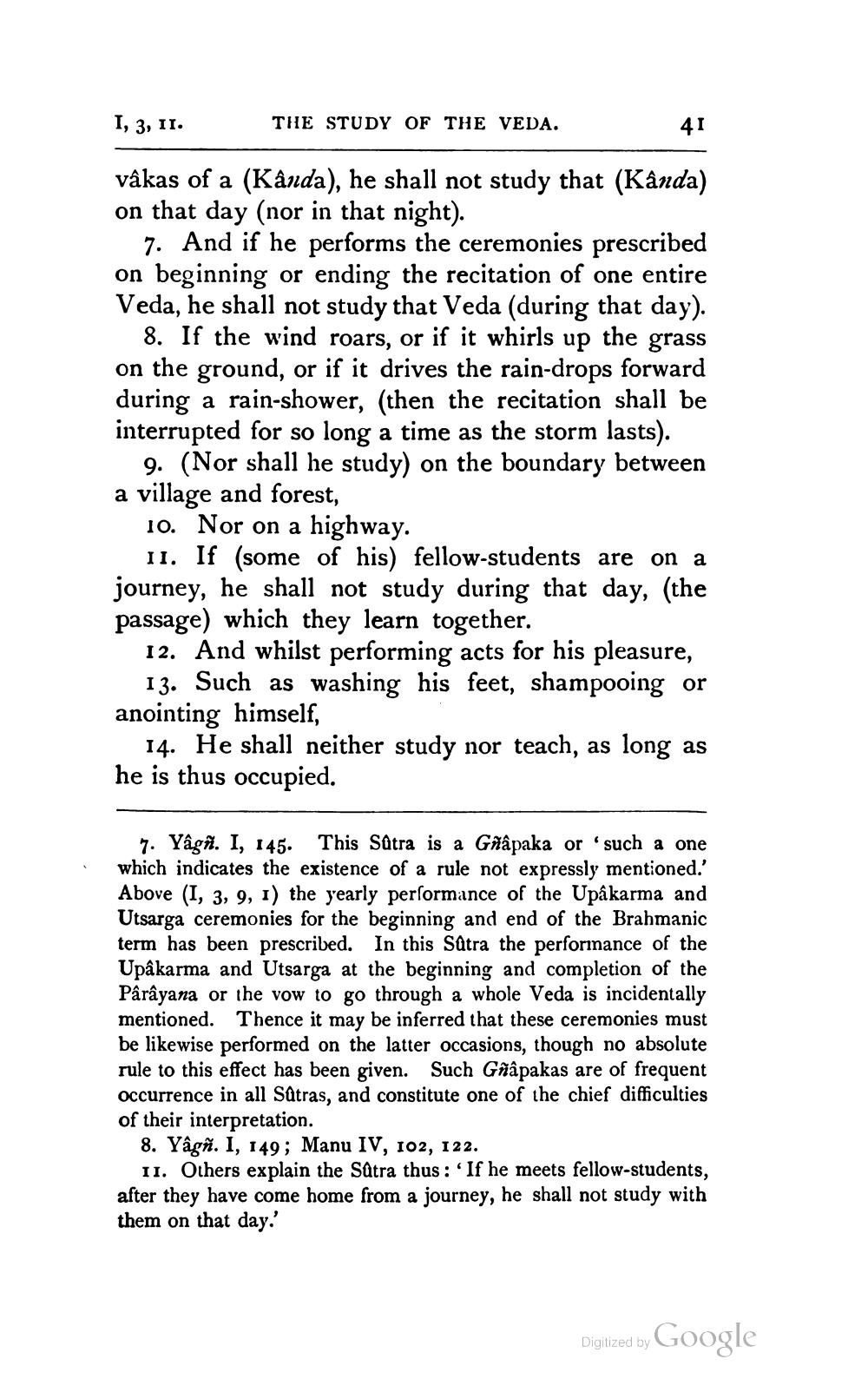________________
I, 3, II.
vâkas of a (Kânda), he shall not study that (Kânda) on that day (nor in that night).
7. And if he performs the ceremonies prescribed on beginning or ending the recitation of one entire Veda, he shall not study that Veda (during that day).
8. If the wind roars, or if it whirls up the grass on the ground, or if it drives the rain-drops forward during a rain-shower, (then the recitation shall be interrupted for so long a time as the storm lasts).
9. (Nor shall he study) on the boundary between a village and forest,
10. Nor on a highway.
11. If (some of his) fellow-students are on a journey, he shall not study during that day, (the passage) which they learn together.
12. And whilst performing acts for his pleasure, 13. Such as washing his feet, shampooing or anointing himself,
14. He shall neither study nor teach, as long as he is thus occupied.
THE STUDY OF THE VEDA.
4I
7. Yâgn. I, 145. This Sutra is a Giâpaka or 'such a one which indicates the existence of a rule not expressly mentioned.' Above (I, 3, 9, 1) the yearly performance of the Upâkarma and Utsarga ceremonies for the beginning and end of the Brahmanic term has been prescribed. In this Sûtra the performance of the Upâkarma and Utsarga at the beginning and completion of the Pârâyana or the vow to go through a whole Veda is incidentally mentioned. Thence it may be inferred that these ceremonies must be likewise performed on the latter occasions, though no absolute rule to this effect has been given. Such Gñâpakas are of frequent occurrence in all Sutras, and constitute one of the chief difficulties of their interpretation.
8. Yâgn. I, 149; Manu IV, 102, 122.
11. Others explain the Sûtra thus: 'If he meets fellow-students, after they have come home from a journey, he shall not study with them on that day.'
Digitized by
Google




